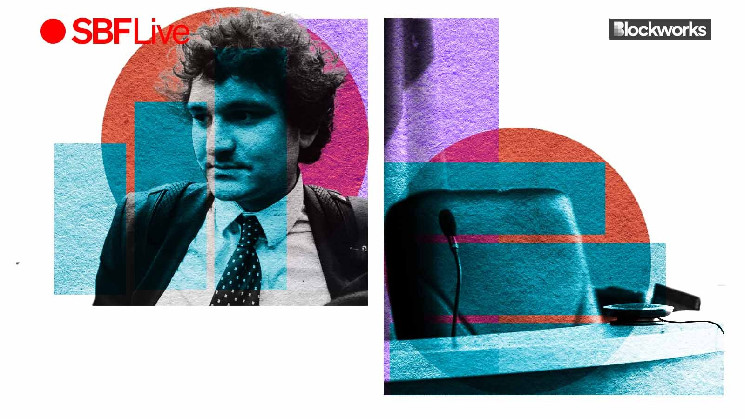It wasn’t long after Ian Allison’s FTX killshot last year that the desire for the crypto community to “move on” from the downfall of its exchange and its leader, Sam Bankman-Fried, first emerged.
Last night’s not-really-surprising, all-counts guilty verdict magnified this hope. Take a spin around Crypto Twitter, er, Crypto X, and you’ll see plenty of comments of this kind.
This hope — to put FTX and Bankman-Fried firmly in the rear-view mirror — is understandable. Let’s put the past in the past and start building again, the thinking goes. It’s an attractive notion — who wouldn’t want to do all they can to inoculate themselves from the public relations disaster the one-time American crypto poster boy had become?
The problem: It’s impossible to “move on.”
There is no escaping SBF, no escaping how he behaved during FTX’s rise and fall, and how the industry behaved in turn. I believe the SBF/FTX cataclysm will cast an immovable shadow, and the sooner the industry and the people within it internalize this fact, the better.
Consider Mt. Gox. For those around during the heady days of the Japanese exchange giant, it was once the place to trade bitcoin. By one estimate, something like 70% of the world’s bitcoin transactions passed through its virtual doors.
Then, in 2014, it imploded. Hundreds of thousands of bitcoins lost, livelihoods ruined, reputations shattered. More than nine years later, the exchange’s creditors, former customers, and the Japanese court system are still dealing with the wreckage.
I bring Gox up not because I want to suggest that the FTX bankruptcy will take a long time to sort through. No, I bring it up because, whether you know it or not, the fall of Gox is still felt profoundly within the industry — namely, its exchanges.
There’s a clear line to be drawn between what crypto regulation looked like before and after the fall of Gox. Headlines about “hundreds of millions of dollars lost” and “illegal online money exchange” jolted global regulators. Suddenly, here was this thing, a breach in the wall of financial oversight.
Hearings, meetings, edicts, votes — it took time, but new rules took shape in direct reaction to the shock and awe of Mt. Gox’s downfall in the years that followed. For Americans, New York’s BitLicense is probably the best-known product of that era.
Japan, where Gox was headquartered, developed a robust system of crypto services oversight. Those rules included a recognition of cryptocurrencies as a type of electronic payment method. A strange twist of fate, perhaps, that crypto earned a measure of legitimacy amid its then-greatest disaster.
Read more from our opinion section: The Sam Bankman-Fried testimony that never was
The world didn’t slam the door on crypto because Mt. Gox failed. But it hasn’t been forgotten. I believe we’re still in the very early stages of a similar reaction, one that will take years to unfold.
The crypto world may want to put SBF behind it. But the rest of the world won’t.
Personally, I think this is a good thing. The idea of moving past SBF suggests that his pursuit for wealth at any cost was somehow abnormal in crypto. I don’t think this is strictly true.
Laura Shin, in a recent piece for CoinDesk, said “was never a true crypto person.”
“He told both Forbes and Michael Lewis that the way in which he earned the money did not matter,” Shin wrote. “He said that if he felt that he could make more money in a different industry, then he would do that, that he did not truly care about crypto.”
Respectfully, I disagree. I think SBF’s influence, the money, the expressions of power shifted what defines a “crypto person.”
Over the last few years, it was hard to escape the conclusion that for “true” crypto people, the objective was to chase digital fortune rather than pursue some kind of tangible ideological outcome. The results were, ultimately, catastrophic. And yeah, I saw it up close.
Okay, Mike, so if there’s no escape from SBF’s shadow, then what?
Humanity’s tendency to erect cults of personality or build up heroes is as old as dirt. The rise and fall of SBF as some kind of crypto hero is the rule, not the exception. It will happen again.
Crypto people will continue to chase those digital fortunes. I think that’s a good thing — minus the possibility of fraud at an astronomical scale. It’s possible that, right now, someone in the world is dreaming up the next crypto empire. I hope they feel encouraged.
But now, the world is different. Because of SBF’s actions, and the actions of those around him. We would do well to remember it.
Michael McSweeney has worked in crypto media since 2014, including editorships at CoinDesk and The Block. In his spare time, he writes fiction and plays disc golf. Contact Michael at michael.mcsweeney@blockworks.co.
Read the full article here

